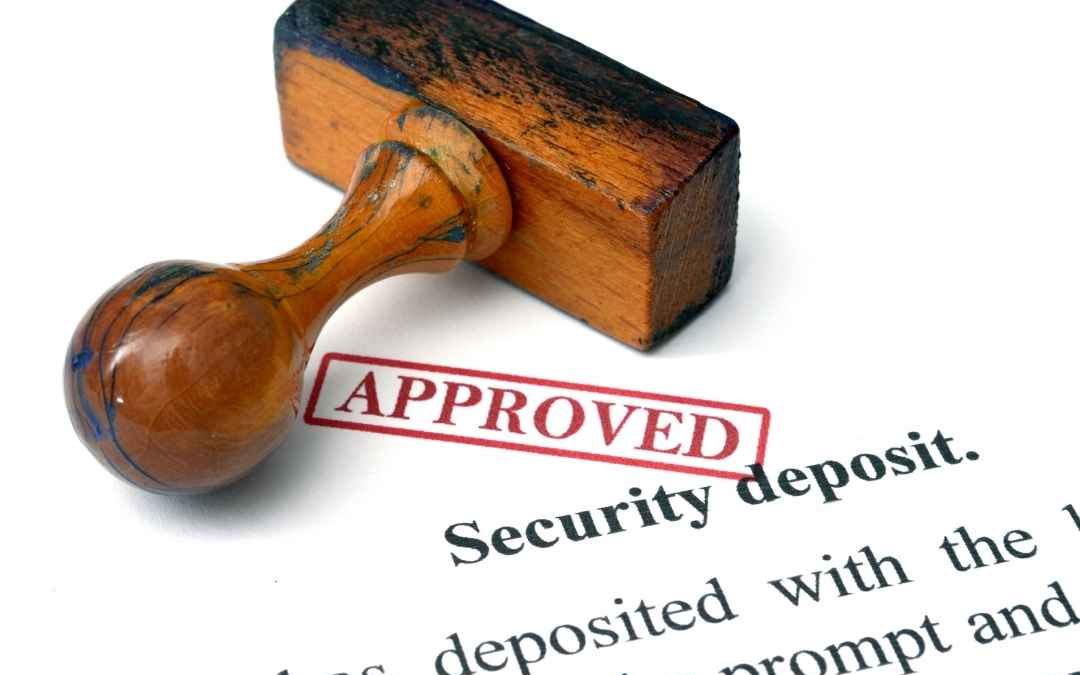How a Security Deposit Actually Works

If you are a new property owner who is ready to take on your first rental tenants, knowing how a security deposit actually works is paramount. You’ve probably heard about security deposits in the past. And, you may have read real-estate blogs or attended local events about being a landlord. You may have even paid a deposit if you were ever a past tenant. However, you may be unaware of the legal requirements surrounding them.
What is the definition of a security deposit?
A security deposit is money paid to a landlord in order to cover any potential damages that could occur over the course of the tenancy. It is a refundable deposit. This means if there are no damages to the property by the end of the tenancy, the amount is restored to the tenants.
Security deposits normally cost between one and three months’ rent. They can also include the first month’s rent, and some may include extra fees for pets and/or smoking. Depending on the state or jurisdiction, the rules may differ. In Wisconsin, there is no limit to the amount a landlord can charge for a security deposit, but it’s still worth checking local city/town rules to see how a security deposit actually works in those localities. Some may have additional rules. Different factors may influence how much you decide to ask for. For example, if your property comes furnished, you may want to ask for a higher deposit. You will certainly want to give your tenant a receipt.
Though security deposits are not legal requirements, they are a great way to help protect your property from damages. They also financially protect you!
A list of things to do before asking your tenant for a security deposit
There are a few things you’ll need to give your tenants before they can hand over any money in the form of a security deposit.
- The lease agreement.
- A written document asking the tenant to notify you of any damages in the property. They must do this within the first seven days of occupancy.
- Notify the tenant of any building/housing code violations on the property that haven’t been fixed yet.
- Let the tenant know about anything in the property that isn’t working properly, such as faucets or electrical wiring issues.
- Tell the tenant if any bills are included in the rent (or not!)
You may decide to sell your rental property while tenants are still occupying it. If so, you can either return their security deposit and notify the new owners, or you can transfer it to the new owner as it stands. All of this must be communicated in writing.
Where do you put the deposit? And how do you file it with the tax man?
In Wisconsin, you can put the security deposit wherever you’d like. You can store it in your own account or in a special account specifically for deposits. There’s no law that requires security deposits to gain interest while you hold it. However, there are different rules for different states.
When filing your taxes, you do not need to include the security deposit as income. Because it is refundable money, it cannot be included as taxable income with the IRS. However, once your tenant has moved out, any partial deductions must be used expressly for the purposes of maintenance for damages. If you keep the whole deposit because your tenant did not pay rent, you must record it as income immediately. If your tenant broke their lease, forfeiting their right to their security deposit, then you must claim the amount as income.

Reasons for keeping a security deposit (or not!)
Obviously, if a tenant damages your property in any way that isn’t caused by the normal wear and tear of everyday life, you are at liberty to keep some or all of their security deposit. You are also allowed to keep it if your tenant has any unpaid bills or unpaid rent.
In Wisconsin, you can write your own rules about what would constitute keeping your tenant’s deposit. However, you must give your tenants these rules in writing. The tenant must sign to say that they understand. If your tenant violates any of your rules, you have legal cause to keep their deposit.
In the state of Wisconsin, you have up to 21 days from the date your tenant moves out to return their security deposit. Otherwise, in this time frame, you must send an itemized list of reasons why you are not returning it. You are not legally required to have a move-out inspection. However, your tenant may ask for one. If they do, it would be worth compiling a check-list of tasks for your tenant to follow. The check-list will include requests like making sure windows are clean, carpets are vacuumed, and smoke alarms are in working order.
How can we help?
We aren’t lawyers and we don’t pretend to be. But we can help you understand how a security deposit actually works. When it comes to the legalities of filling out security deposit paperwork, it’s always best to speak to a legal professional.
Owning real-estate is a great investment, so if you’re looking to talk to someone, please don’t hesitate to get in touch with us. We’d love to hear more about your property journey, your real-estate goals, and your hopes for the future.
